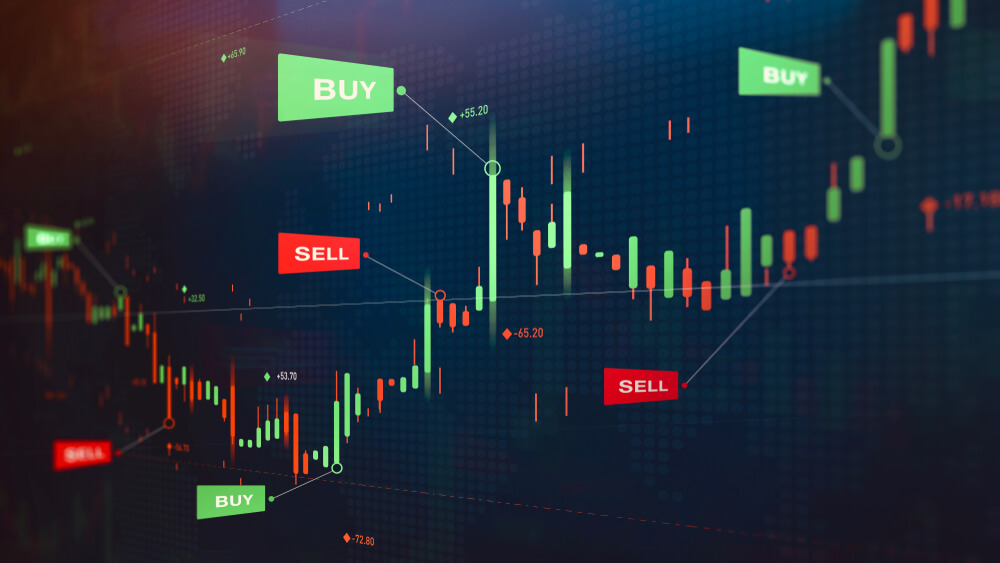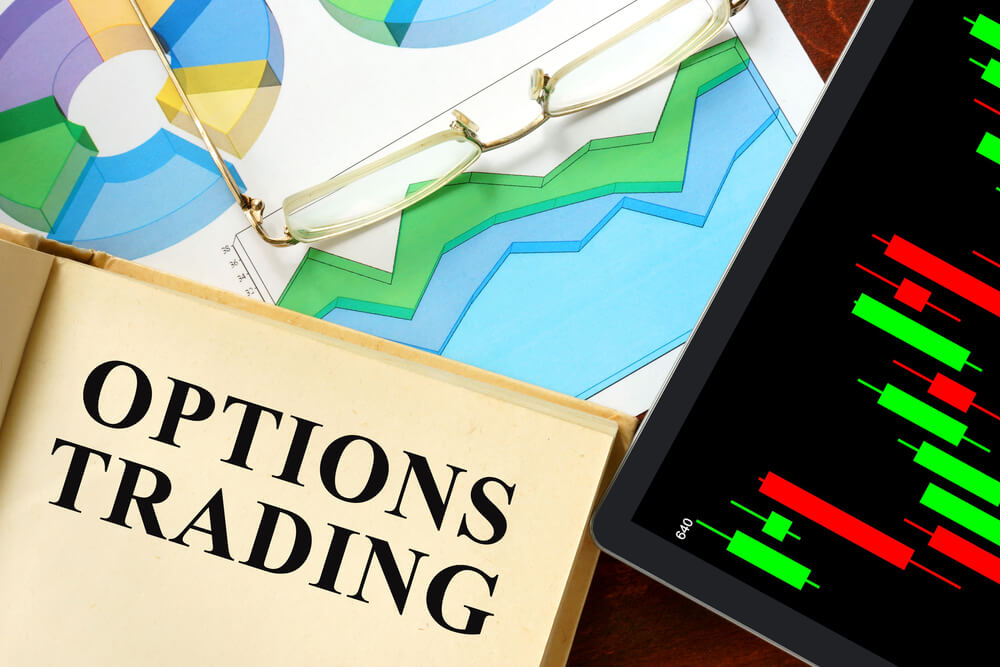
Forex trading vs Options Trading: A Comparative Guide
Exploring the intricate world of financial markets might seem overwhelming. Within the vast array of investment options, forex and options trading emerge as notable choices. Both present distinct advantages and obstacles. We’ll embark on an in-depth comparison Forex trading vs Options trading to clarify these two favored trading methods.
Options trading vs. Forex trading: What Are They?
Forex Trading
Forex trading captivates participants who engage in the buying and selling of foreign currency pairs, like the Euro and U.S. dollar (EUR/USD), aiming to profit from changes in exchange rates.
Known for its immense scale, unparalleled liquidity, and persistent chances for quick gains, the forex market thrives on the perpetual movement of currency values. Operating 24/7 across five business days, it welcomes traders worldwide, offering access across various time zones.
Options Trading
Options trading revolves around the use of options contracts. These financial instruments provide traders with the right, but crucially not the obligation, to buy (call options) or sell (put options) an asset at a set price—known as the strike price—up until the contract’s expiration date.
The beauty of options trading lies in its flexibility and the strategic opportunities it offers. Traders can use options across a broad spectrum of underlying assets, including stocks, bonds, commodities, and indeed, currencies themselves, as seen in forex options.
This variety allows traders to tailor their strategies to suit their risk tolerance, market view, and financial goals.

Call and put options are two fundamental types of options contracts in trading.
A call option gives you the right, but not the obligation, to buy a specific asset at a predetermined price, known as the strike price, within a set period. If you believe the price of the asset will go up, you might buy a call option to purchase it at today’s price, hoping to profit from the rise.
A put option, on the other hand, gives you the right, but not the obligation, to sell a specific asset at the strike price before the option expires. You would buy a put option if you think the price of the asset is going to fall. This way, you can sell it at the higher price, even if the market value drops.
Main Differences Between Forex and Options
Forex trading focuses on the spot market, where currencies are exchanged based on their current prices.
It offers high leverage, allowing traders to control large positions with a relatively small amount of capital. Forex markets are known for their extended market hours and significant volatility.
Options trading revolves around buying and selling options contracts in options markets. These contracts offer more structured risk management options and can be used for speculative purposes or to hedge other investments.
Unlike forex, options trading involves dealing with market liquidity and understanding complex trading strategies.
Main Similarities Between Forex and Options
Both forex and options trading require a deep understanding of market movements and the factors that influence them.
Traders in both markets benefit from a strong grasp of risk management, leverage, and volatility. Additionally, both markets allow traders to speculate on upward and downward movements, offering the potential for profit in both rising and falling markets.
Pros and Cons of Forex Trading

Pros:
High liquidity and market hours offer significant trading flexibility.
Potential for high leverage means greater profit potential from small movements.
Straightforward market compared to options trading.
Cons:
High leverage also increases the risk of substantial losses.
Market volatility can lead to rapid changes in exchange rates.
Forex trading requires constant market monitoring due to the potential for rapid price movements.
Pros and Cons of Options Trading
Pros:
Options provide structured risk, allowing traders to limit potential losses.
They offer a variety of strategies for different market conditions.
Can be used to hedge other investments, reducing overall portfolio risk.
Cons:
Options markets can be complex and require a higher level of understanding.
Market liquidity may vary, affecting the execution of trades.
Options contracts have a finite life, adding the element of time decay to trading strategies.
Forex Trading Example vs. Options Trading Example

In forex trading, if a trader anticipates the euro to strengthen against the dollar, they might buy the EUR/USD currency pair. If the exchange rate moves favorably, the trader can sell the pair for a profit.
In options trading, if a trader believes a stock will rise, they might buy a call option on that stock. If the stock’s price increases above the call option’s strike price, the trader can exercise the option to achieve gains or sell the option contract itself for a profit.
Speed and Complexity of Forex vs. Options
Forex trading is known for its speed, with the potential for quick gains (or losses) due to market volatility. It requires less technical knowledge than options trading, making it more accessible to beginners.
Options trading is more complex, involving various strategies that can adjust to different market conditions. This complexity allows for more nuanced risk management but requires a more thorough understanding of the market.
The high level of liquidity in the forex market and the fact that it offers spot trading make it relatively easier to trade, with a basic knowledge of how to trade forex enough. Options trading requires a degree of proficiency to properly understand and navigate the market.
Forex vs. Options In Your Portfolio
Incorporating forex or options trading into your portfolio depends on your investment goals, risk tolerance, and market knowledge. Forex trading might suit those looking for high liquidity and the ability to trade on global economic news. Options trading might appeal to those seeking to hedge other investments or prefer a more strategic approach to market volatility.
Is Forex or Options Trading Right for You?
When comparing options vs. forex, options trading can be more versatile than forex due to the vast number of options strategies. With forex trading, you simply go long or short a currency. Options trading offers the chance to profit in a variety of market conditions, too.

One downside to options trading is that it can take a long time to learn the ins and outs of options trading. Another drawback is that many options are illiquid, so it is hard to buy and sell quickly at a competitive price.
Choosing between forex and options trading depends on your preference for market complexity, risk management capabilities, and investment strategy.
Forex trading offers simplicity and high liquidity, suitable for those who prefer quick decisions based on global economic factors. Options trading is ideal for investors who enjoy strategy, structured risk, and the potential for hedging.
Conclusion
Options and forex trading have both similarities and differences. With options, you can trade various underlying assets and set your own risk and reward levels.
In forex trading, you make money from the changing values of different countries’ currencies and can trade any time of the day. Both options and forex markets can see rapid changes in prices, carrying certain risks. It’s crucial to understand these risks before you start trading.
FAQ
Is options trading more profitable than forex?
Profitability depends on the trader’s skill, strategy, and market conditions. Options trading can offer high returns with structured risk, while forex trading provides opportunities for quick profits due to market volatility.
Is forex trading less risky than options trading?
Risk levels vary. Forex trading can be highly volatile, and while leverage can increase profits, it can also magnify losses. Options trading allows for more controlled risk but requires understanding complex strategies.
How do you invest in Forex?
You can invest in forex through a forex broker, using a trading platform to buy and sell currency pairs based on predictions of changing exchange rates.
How do you invest in options?
Investing in options involves buying or selling options contracts through a broker. Traders use various strategies based on their market outlook and risk tolerance.




